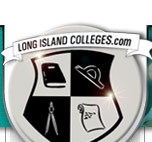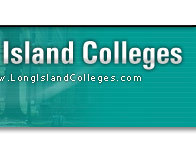 |
 |
 |
 |
|
|
Long Island College Loans
It's advisable to opt for government sources for college loans, as they are the cheapest. The best source of college loans is the Department of Education's Federal Student Aid (FSA). Of course there are other sources of Government education funding, but the Department of Education's Federal Student Aid (FSA) is the largest students loan-funding source in America. Every year billions of dollars are disbursed as student loan by the Department of Education and in 2006 around $82 billions will be disbursed in the form of grants, loans and aids. Generally anything to do with finance and funding is expected to involve cumbersome process, but not with the online Free Application for Federal Student Aid (FAFSA). Applying for a college loan is really simple with FAFSA. Before applying for a college loan you must decide on the course and colleges you would prefer to study. After that a PIN should be obtained. Then all you have to do is fill up an online form providing all the required information like social security number, driving license details, tax return papers etc. The eligibility conditions state that a- you should be a citizen of USA or an eligible non-citizen, b- should qualify for financial need, c- should have a high school diploma or a General Education Development (GED) certificate. You must have passed a test approved by the U.S. Department of Education. You also should meet other standards your state establishes that the Department approves, or complete a high school education in a home school setting that is treated as such under state law. You should be working towards getting a college degree. Add your Expected Family Contribution (EFC), Pell Grant eligibility, Aids from other sources and then deduct this sum from the Cost of Attendance to arrive at the amount of loan you would receive. That's how financial need is calculated. Cost of Attendance includes tuition and fees, board and room (living expenses), transportation, books, computers etc. A drug abuse or selling conviction would disqualify you from getting a student loan. But some states are lenient on this and you should complete filling the FAFSA and verify your status later where you may be asked to try in particular states for a college loan. A general word of caution when applying for FAFSA, stay away from scams who promise speedy and efficient service. Take a little pain and do it your self. There are hundreds of students and parents who are duped by such scams and millions are lost. The FAFSA web site has detail guidelines about how avoid scams and do everything officially with the government. Repayment starts after you graduate, leave school or drop out in between. Generally there is a grace period of 6-9 months from the date of your leaving college. After that you repay your loan monthly on an installment basis. The government college loans are cheaper. However if you miss out on the government college loans there are many private sources that can fund your college education. The interest rates charged on the loans will vary from 1.5-6% depending on your credit worthiness. A supplemental fee is charged by private funding agencies that could vary between 5-10% depending on your credit history and when choose to start repaying. If you chose to start repaying immediately after the loan disbursement then the interest rate as well as the supplemental fee would be low. But if you defer payment till you complete college then the fees go up. You should also watch out for any other hidden costs when dealing with private funding agencies. There may be processing fees, application fees and other such fees set by the agency to extract money from the loan applicants. Apart from eligibility and other things, availing a college loan requires commitment - a determination to complete college. Standing on the podium with the degree certificate in your hand would be a day of pride in your life and the college loan that funded it would be worth repaying. |
|
|
|
The information on this site is believed to be correct but is provided on an "As Is" basis. No warranty of any kind is given with respect to the content of this website. Most data is sourced from New York State Department of Education.
|

